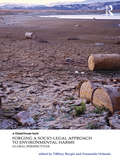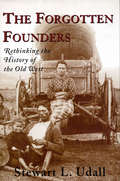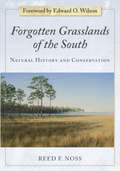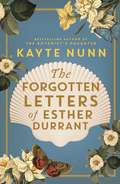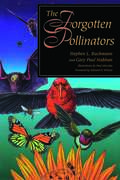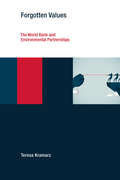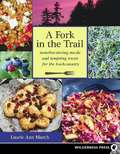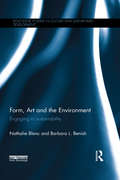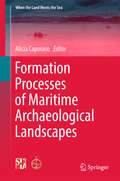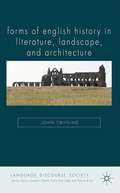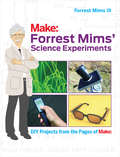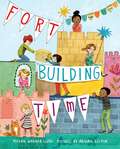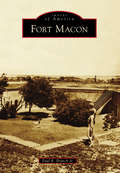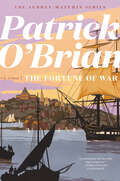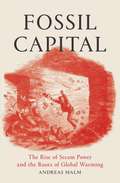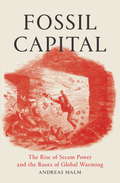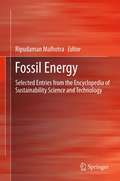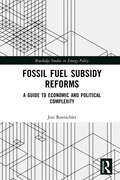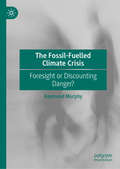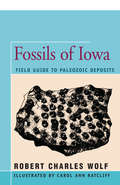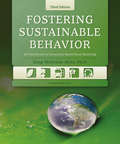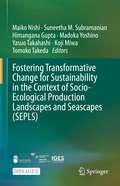- Table View
- List View
Forging a Socio-Legal Approach to Environmental Harms: Global Perspectives (Law, Justice and Ecology)
by Tiffany Bergin Emanuela OrlandoEnvironmental harms exert a significant toll and pose substantial economic costs on societies around the world. Although such harms have been studied from both legal and social science perspectives, these disciplinary-specific approaches are not, on their own, fully able to address the complexity of these environmental challenges. Many legal approaches, for example, are limited by their inattention to the motivations behind environmental offences, whereas many social science approaches are hindered by an insufficient grounding in current legislative frameworks. This edited collection constitutes a pioneering attempt to overcome these limitations by uniting legal and social science perspectives. Together, the book’s contributors forge an innovative socio-legal approach to more effectively respond to, and to prevent, environmental harms around the world. Integrating theoretical and empirical work, the book presents carefully selected illustrations of how legal and social science scholarship can be brought together to improve policies. The various chapters examine how a socio-legal approach can ultimately lead to a more comprehensive understanding of environmental harms, as well as to innovative and effective responses to such environmental offences.
The Forgotten Founders: Rethinking The History Of The Old West
by David Emmons Stewart L. UdallIn The Forgotten Founders, Stewart Udall draws on his vast knowledge of and experience in the American West to make a compelling case that the key players in western settlement were the sturdy families who travelled great distances across forbidding terrain to establish communities there. He offers an illuminating and wide-ranging overview of western history and those who have written about it, challenging conventional wisdom on subjects ranging from Manifest Destiny to the importance of Eastern capitalists to the role of religion in westward settlement.Stewart Udall argues that the overblown and ahistorical emphasis on a "wild west" has warped our sense of the past. For the mythical Wild West, Stewart Udall substitutes a compelling description of an Old West, the West before the arrival of the railroads, which was the home place for those he calls the "wagon people," the men and women who came, camped, settled, and stayed. He offers a portrait of the West not as a government creation or a corporate colony or a Hollywood set for feckless gold seekers and gun fighters but as primarily a land where brave and hardy people came to make a new life with their families. From Native Americans to Franciscan friars to Mormon pioneers, these were the true settlers, whose goals, according to Stewart Udall were "amity not conquest; stability, not strife; conservation, not waste; restraint, not aggression." The Forgotten Founders offers a provocative new look at one of the most important chapters of American history, rescuing the Old West and its pioneers from the margins of history where latter-day mythmakers have dumped them. For anyone interested in the authentic history of the American West, it is an important and exciting new work.
Forgotten Grasslands of the South: Natural History and Conservation
by Reed F NossForgotten Grasslands of the South is the study of one of the biologically richest and most endangered ecosystems in North America. In a seamless blend of science and personal observation, renowned ecologist Reed Noss explains the natural history of southern grasslands, their origin and history, and the physical determinants of grassland distribution, including ecology, soils, landform, and hydrology. In addition to offering fascinating new information about these little-studied ecosystems, Noss demonstrates how natural history is central to the practice of conservation. Although theory and experimentation have recently dominated the field of ecology, ecologists are coming to realize how these distinct approaches are not divergent but complementary, and that pursuing them together can bring greater knowledge and understanding of how the natural world works and how we can best conserve it. This long-awaited work sets a new standard for scientific literature and is essential reading for those who study and work to conserve the grasslands of the South as well as for everyone who is fascinated by the natural world.
The Forgotten Letters of Esther Durrant: The new gripping and heartbreaking historical novel from the bestselling author of The Botanist's Daughter
by Kayte Nunn'I loved this exquisitely written novel and drank in every word. The Forgotten Letters of Esther Durrant is a reminder of the redemptive nature of love, and that it can be found in the most unexpected places.' Fiona Valpy, bestselling author of The Dressmaker's Gift and The Beekeeper's PromiseAn abandoned woman...1951. Esther Durrant, a young mother, is committed to an asylum by her husband. Run by a pioneering psychiatrist, the hospital is at first Esther's prison - but can captivity lead to freedom?A forbidden love...2018. When free-spirited marine scientist Rachel Parker is forced to take shelter on an isolated island off the Cornish Coast during a research posting, she discovers a collection of hidden love letters. Captivated by their passion and tenderness, Rachel is determined to find the intended recipient. A dangerous secret...Meanwhile, in London, Eve is helping her grandmother write her memoirs. When she is contacted by Rachel, it sets in motion a chain of events that threatens to reveal secrets kept buried for more than sixty years. Three women bound together by a heartbreaking secret. A love story that needs to be told.This beautifully haunting and atmospheric novel, will sweep fans of Kate Morton, Elizabeth Gilbert and Emily Gunnis away this summer.'If you enjoyed "City of Girls," by Elizabeth Gilbert, read "The Forgotten Letters of Esther Durrant," by Kayte Nunn' Washington PostNetGalley reviewers are falling in love with The Forgotten Letters of Esther Durrant:'Loved, loved this book. The multi layers wove an intriguing tale, and this was a well researched engaging and heart rending story.''Beautifully written''An absorbing tale set mainly in the Channel Islands. I wanted to know what the resolution would be, so stayed up to read to the end!'Praise for Katye Nunn's The Botanist's Daughter:'A sweeping and exotic read. I was completely swept away. Perfect for readers of Kate Morton.' Lorna Cook, bestselling author of 'The Forgotten Village''The whole book is a delight... Perfect reading whilst sipping a g & t in a beautiful garden somewhere in the sun!' Rosanna Ley, bestselling author of 'The Lemon Tree Hotel''I loved this book and really look forward to reading the next book by Kayte Nunn; perfect for reading in the garden with a glass of something cold.' Bookliterat'Fast-moving and full of surprises...while delivering a poignant and heart-warming story of romance and new beginnings ' Kate Forsyth'The Botanist's Daughter is a quick paced but mysterious read, which transports you across time and place and is filled with an abundance of flowers.' Foreword Books'The Botanist's Daughter is an intriguing story about the strength of women who, for their own reasons, are willing to travel halfway across the world and end up with the same goal. It's also a family mystery that slowly reveals its secrets, just like a blooming flower.' The Bookish Gurl 5/5 stars
The Forgotten Pollinators: Dynamics And Restoration Of Abandoned Farmland
by Gary Paul Nabhan Paul Mirocha Stephen L. BuchmannConsider this: Without interaction between animals and flowering plants, the seeds and fruits that make up nearly eighty percent of the human diet would not exist.In The Forgotten Pollinators, Stephen L. Buchmann, one of the world's leading authorities on bees and pollination, and Gary Paul Nabhan, award-winning writer and renowned crop ecologist, explore the vital but little-appreciated relationship between plants and the animals they depend on for reproduction -- bees, beetles, butterflies, hummingbirds, moths, bats, and countless other animals, some widely recognized and other almost unknown.Scenes from around the globe -- examining island flora and fauna on the Galapagos, counting bees in the Panamanian rain forest, witnessing an ancient honey-hunting ritual in Malaysia -- bring to life the hidden relationships between plants and animals, and demonstrate the ways in which human society affects and is affected by those relationships. Buchmann and Nabhan combine vignettes from the field with expository discussions of ecology, botany, and crop science to present a lively and fascinating account of the ecological and cultural context of plant-pollinator relationships.More than any other natural process, plant-pollinator relationships offer vivid examples of the connections between endangered species and threatened habitats. The authors explain how human-induced changes in pollinator populations -- caused by overuse of chemical pesticides, unbridled development, and conversion of natural areas into monocultural cropland-can have a ripple effect on disparate species, ultimately leading to a "cascade of linked extinctions."
Forgotten Values: The World Bank and Environmental Partnerships (Earth System Governance)
by Teresa KramarzAn examination of the conflict between values and bureaucracy in World Bank biodiversity partnerships that sheds light on this model of global environmental governance.Multi-stakeholder partnerships have become an increasingly common form of global governance. Partnerships, usually between international organizations (IOs) or state agencies and such private actors as NGOs, businesses, and academic institutions, have even been promoted as the gold standard of good governance--participatory, innovative, and well-funded. And yet these partnerships often fail to live up to the values that motivated their establishment. In this book, Teresa Kramarz examines this gap between promise and performance by analyzing partnerships in biodiversity conservation initiatives launched by the World Bank.
Fork in the Trail
by Laurie Ann MarchInspired by foods from all over the world and the guiding principle of "if you wouldn't eat it at home, why eat it in the backcountry," Laurie Ann March has created over 200 lightweight, taste-tested recipes to turn an ordinary backcountry outing into a gourmet adventure. In addition to the recipes, March covers menu planning, recipe creation, and meal planning for families and larger groups. Color photograph insert.
Form, Art and the Environment: Engaging in Sustainability (Routledge Studies in Culture and Sustainable Development)
by Nathalie Blanc Barbara L. BenishForm, Art and the Environment: Engaging in Sustainability adopts a pluralistic perspective of environmental artistic processes in order to examine the contributions of the arts in promoting sustainable development and culture at a grassroots level and its potential as a catalyst for social change and awareness. This book investigates how community arts, environmental creativity, and the changing role of artists in the Polis contribute to the goal of a sustainable future from a number of interdisciplinary perspectives. From considering the role that art works play in revealing local environmental problems such as biodiversity, public transportation and energy issues, to examining the way in which artists and art works enrich our multidimensional understanding of culture and sustainable development, Form, Art and the Environment advocates the inestimable value of art as an expressive force in promoting sustainable culture and conscious development. Utilising a broad range of case studies and analysis from a body of work collected through the international environmental COAL prize, this book examines the evolution of the relationship between culture and the environment. This book will be of interest to practitioners of the environmental arts, culture and sustainable development and students of Art, Environmental Science, and International Policy and Planning Development.
Formal Peace and Informal War: Security and Development in Congo (Routledge Explorations in Development Studies)
by Zoë MarriageNorthern interventions into African countries at war are dominated by security concerns, bolstered by claims of shared returns and reinforcing processes of development and security. As global security and human security became prominent in development policy, Congo was wracked by violent rule, pillage, internal fighting, and invasion. In 2002, the Global and All-Inclusive Peace was promoted by northern donors, placing a formal peace on the mass of informalised wars. Formal Peace and Informal War: Security and Development in Congo examines how the security interests of the Congolese population have interacted with those of northern donors. It explores Congo’s contemporary wars and the peace agreed on in 2002 from a security perspective and challenges the asserted commonality of the liberal interventions made by northern donors. It finds that the peace framed the multiple conflicts in Congo as a civil war and engineered a power-sharing agreement between elite belligerents. The book argues that the population were politically and economically excluded from the peace and have been subjected to control and containment when their security rests with power and freedom.
Formation Processes of Maritime Archaeological Landscapes
by Alicia CaporasoResearch into the anthropogenic and taphonomic processes that affect the formation of maritime archaeological resources has grown significantly over the last decade in both theory and the analysis of specific sites and associated material culture. The addition of interdisciplinary inquiry, investigative techniques, and analytical modeling, from fields such as engineering, oceanography, and marine biology have increased our ability to trace the unique pathways through which archaeological sites progress from initial deposition to the present, yet can also link individual sites into an integrated socio-environmental maritime landscape. This edited volume presents a global perspective of current research in maritime archaeological landscape formation processes. In addition to "classically" considered submerged material culture and geography, or those that can be accessed by traditional underwater methodology, case studies include less-often considered sites and landscapes. These landscapes, for example, require archaeologists to use geophysical marine survey equipment to characterize extensive areas of the seafloor or go above the surface to access maritime archaeological resources that have received less scholarly attention.
Forms of English History in Literature, Landscape, and Architecture
by John TwyningAn exploration of the way English literature has interacted with architectural edifices and the development of landscape as a national style from the Middle Ages to the 19th Century. Analyzing texts in relation to cultural artefacts, each chapter demonstrates the self-conscious production of English consciousness as its most enduring history.
Forrest Mims' Science Experiments: DIY Projects from the Pages of Make:
by MimsForrest M. Mims is a revered contributor to Make: magazine, where his popular columns about science-related topics and projects for Makers are evergreen treasures. Collected together here for the first time, these columns range from such simple projects as building an LED tracker for hand-launched night rockets to such challenging builds as transforming strings of data into unique musical compositions.A variety of photography and imaging projects are featured, including an ultra-sensitive twilight photometer that measures the elevation of layers of dust, smoke, and smog from around 3,000 feet to the top of the stratosphere at 31 miles! Most of the projects can be done with a collection of simple electronic components, such as LEDs, transistors, resistors, and batteries. To inspire and motivate readers, the book also includes profiles of such famous Makers as President Thomas Jefferson and Microsoft co-founder Paul Allen.
Fort-Building Time
by Megan Wagner LloydGrab your blankets and pillows! From the creators of Finding Wild, a new picture book that follows the changing of the seasons and is as cozy as a fort. Winter, spring, summer, fall. Each season brings new materials to make the perfect fort. From leaves to snow, from mud to sand, there is a different fort throughout the year. As a group of friends explore and build through the seasons, they find that every fort they make is a perfect fort. From the team behind Finding Wild, which Publishers Weekly called &“a sparkling debut&” and a &“whimsical meditation on the idea of wildness,&” Megan Wagner Lloyd and Abigail Halpin are together again for a portrayal of a classic childhood endeavor that is perfect all year long.
Fort Macon
by Paul R. BranchSilently standing guard on the eastern point of Bogue Banks overlooking the entrance to Beaufort Harbor, Fort Macon is the centerpiece of one of the most visited North Carolina State Parks. Since Fort Macon State Park was established in 1924, it has been a familiar destination for millions of visitors to the "Crystal Coast" of Carteret County, North Carolina. The old historic fort itself, standing today in venerable repose, harkens back to another time in our country's history, however. At different times throughout its long, storied past, the fort has served as a US Army garrison post, a stronghold occupied for defense in three different wars, the scene of a desperate battle, a prison, and finally the second oldest state park in North Carolina. Fort Macon showcases this unique coastal fortification through historic images, highlighting not only its military past, but its role as a popular tourism destination through the years.
The Fortune of War ( Aubrey/Maturin Novels #6)
by Patrick O'BrianCaptain Jack Aubrey, R. N., arrives in the Dutch East Indies to find himself appointed to the command of the fastest and best-armed frigate in the Navy. He and his friend Stephen Maturin take passage for England in a dispatch vessel. But the War of 1812 breaks out while they are en route. Bloody actions precipitate them both into new and unexpected scenes where Stephen's past activities as a secret agent return on him with a vengeance.
Fossil Capital: The Rise of Steam Power and the Roots of Global Warming
by Andreas MalmHow capitalism first promoted fossil fuels with the rise of steam power The more we know about the catastrophic implications of climate change, the more fossil fuels we burn. How did we end up in this mess?
Fossil Capital: The Rise of Steam Power and the Roots of Global Warming
by Andreas MalmHow capitalism first promoted fossil fuels with the rise of steam powerThe more we know about the catastrophic implications of climate change, the more fossil fuels we burn. How did we end up in this mess? In this masterful new history, Andreas Malm claims it all began in Britain with the rise of steam power. But why did manufacturers turn from traditional sources of power, notably water mills, to an engine fired by coal? Contrary to established views, steam offered neither cheaper nor more abundant energy--but rather superior control of subordinate labour. Animated by fossil fuels, capital could concentrate production at the most profitable sites and during the most convenient hours, as it continues to do today. Sweeping from nineteenth-century Manchester to the emissions explosion in China, from the original triumph of coal to the stalled shift to renewables, this study hones in on the burning heart of capital and demonstrates, in unprecedented depth, that turning down the heat will mean a radical overthrow of the current economic order.From the Trade Paperback edition.
Fossil Energy
by Ripudaman MalhotraThe word sustainability shares its root with sustenance. In the context of modern society, sustenance is inextricably linked to the use of energy. Fossil Energy provides an authoritative reference on all aspects of this key resource, which currently represents nearly 85% of global energy consumption. Gathering 16 peer-reviewed entries from the Encyclopedia of Sustainability Science and Technology, the chapters provide comprehensive, yet concise coverage of fundamentals and current areas of research. Written by recognized authorities in the field, this volume represents an essential resource for scientists and engineers working on the development of energy resources, fossil or alternative, and reflects the essential role of energy supplies in supporting a sustainable future.
Fossil Fuel Subsidy Reforms: A Guide to Economic and Political Complexity (Routledge Studies in Energy Policy)
by Jun RentschlerCountries around the world are spending up to $500 billion per year on subsidising fossil fuel consumption. By some estimates, the G20 countries alone are spending around another $450 billion on subsidising fossil fuel production. In addition, the indirect social welfare costs of these subsidies have been shown to be substantial – for instance due to air pollution, road congestion, climate change, and economic inefficiency, to name a few. Considering these numbers, there is no doubt that fossil fuel subsidies cause severe economic distortions that compromise countries’ prospects of achieving equitable and sustainable development. This book provides a guide to the complex challenge of designing, assessing, and implementing effective fossil fuel subsidy reforms. It shows that subsidy reform requires a careful balancing of complex economic and political trade-offs, as well as measures to mitigate adverse effects on vulnerable households and to assist firms with implementing efficiency enhancing measures. Going beyond the purely fiscal perspective, this book emphasises that smart subsidy reforms can contribute to all three dimensions of sustainable development – environment, society, and economy. Over the course of eight chapters, this book considers a wide range of agents and stakeholders, markets, and policy measures in order to distil the key principles of designing effective fossil fuel subsidy reforms. This book will be of great relevance to scholars and policy makers with an interest in energy economics and policy, climate change policy, and sustainable development more broadly.
The Fossil-Fuelled Climate Crisis: Foresight or Discounting Danger?
by Raymond MurphyThis book analyses the threat posed by the continued use of fossil fuels. By utilizing Elizabeth Shove’s social practices approach and Murphy’s own social closure framework, the book examines the accelerating treadmill of carbon-polluting practices. It incorporates externalities theory to investigate how the full cost of fossil fuels is paid by others rather than users, and to demonstrate that the environmental commons is a medium for conveying intergenerational monopolisation and exclusion in the Anthropocene. Murphy uncovers a pattern of opposition to change when exploiting valuable but dangerous resources. He argues that a new faith in mastering nature is emerging as a belief in just-in-time technological solutions to circumvent having to change fossil-fuelled practices.The book then moves on to assess proposed solutions, including Beck’s staging of risk and his hypothesis that the anticipation of global catastrophe will incite emancipation. It proposes a novel approach to enhancing foresight and avoid incubating disaster. It will appeal to readers interested in an original social science analysis of this creeping crisis and its resolution.
Fossils: The Key to the Past
by Richard A. ForteyA guide for amateur fossil collectors and general readers to how fossils came about, how to find and identify them, and their economic and practical importance. Emphasizes fossils easy to find. Includes a short glossary without pronunciation.
Fossils of Iowa: Field Guide to Paleozoic Deposits
by Robert Wolf Carol Ann RatliffThe Fossils of Iowa field guide is written primarily for amateurs in geological exploration and collecting. Robert Wolf provides a comprehensive coverage of more than 150 sites in Iowa and adjacent areas of Minnesota and Nebraska with the types of fossils that can be found and precise directions. Excellent illustrations by Carol Ann Ratcliff aide in identification. For an update in site conditions and geological names since the book was first published contact the author at midnightwriter@frontiernet.net.
Fossils Tell of Long Ago (Let's-Read-and-Find-Out Science 2)
by AlikiWhat is a fossil?Sometimes it's the imprint of an ancient leaf in a rock. Sometimes it's a woolly mammoth, frozen for thousands of years in the icy ground. Sometimes it's the skeleton of a stegosaurus that has turned to stone.A fossil is anything that has been preserved, one way or another, that tells about life on Earth. But you can make a fossil, too—something to be discovered a million years from now—and this book will tell you how.
Fostering Sustainable Behavior
by Doug Mckenzie-MohrTo attain a sustainable future, we must change many of our everyday actions. This completely revised and updated edition of Fostering Sustainable Behavior shows how community-based social marketing is key to overcoming barriers and resistance, and creating new social norms.
Fostering Transformative Change for Sustainability in the Context of Socio-Ecological Production Landscapes and Seascapes (SEPLS)
by Maiko Nishi Suneetha M. Subramanian Himangana Gupta Madoka Yoshino Yasuo Takahashi Koji Miwa Tomoko TakedaThis open access book is a compilation of case studies that provide useful knowledge and lessons that derive from on-the-ground activities and contribute to policy recommendations, focusing on the relevance of social-ecological production landscapes and seascapes (SEPLS) to “transformative change.” The concept of “transformative change” has been gaining more attention to deal with today’s environmental and development problems, whereas both policy and scientific communities have been increasingly calling for transformative change toward sustainable society. The Intergovernmental Science-Policy Platform on Biodiversity and Ecosystem Services (IPBES) has planned to start the so-called “assessment on transformative change” if approved by the IPBES plenary to be held in 2021. At present, the idea of transformative change, including its scope, methodologies, approaches and strategies, are yet to be clarified. By bringing together all of the different concerns and interests in the land/seascape, SEPLS approaches could provide practical and experience-based insights for understanding and gauging transformative change and identifying determinants of such change. This book explores how SEPLS management relates to the idea of transformative change to further the discussion of sustainable transitions in advancing sustainability science. The introductory chapter is followed by case study chapters offering real-world examples of transformative change as well as a synthesis chapter clarifying the relevance of the case study findings to policy and academic discussions. It will be of interest to scholars, policymakers and professionals in the fields related to sustainable development.
